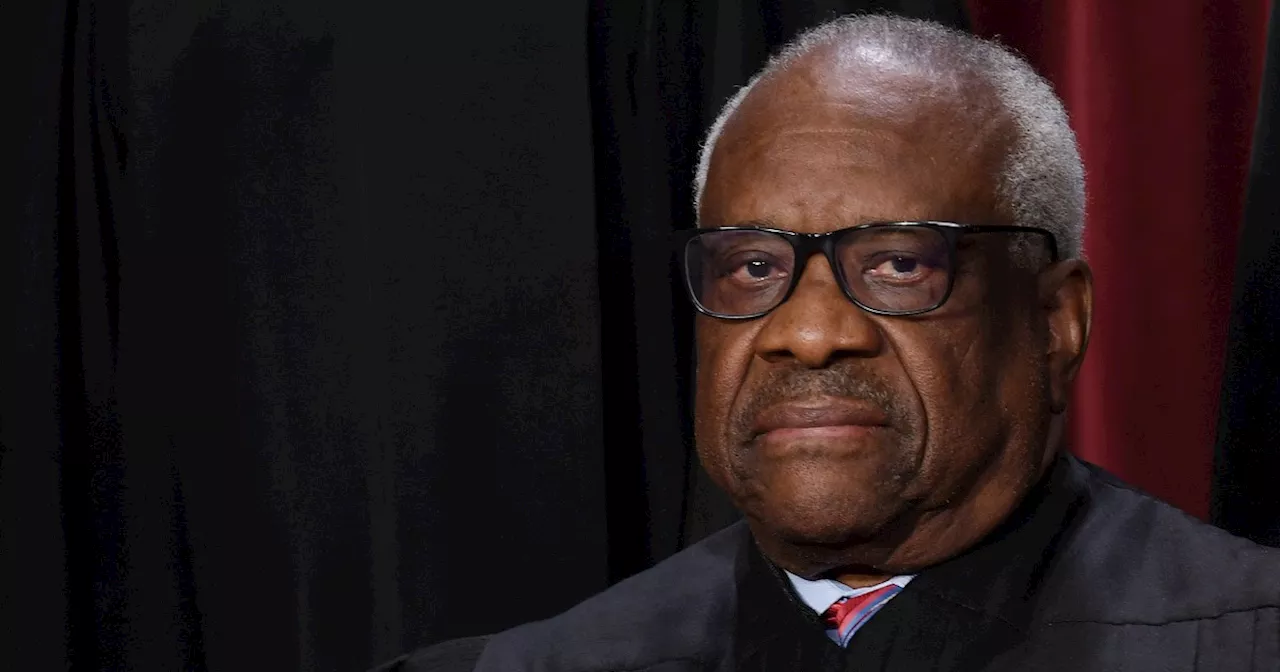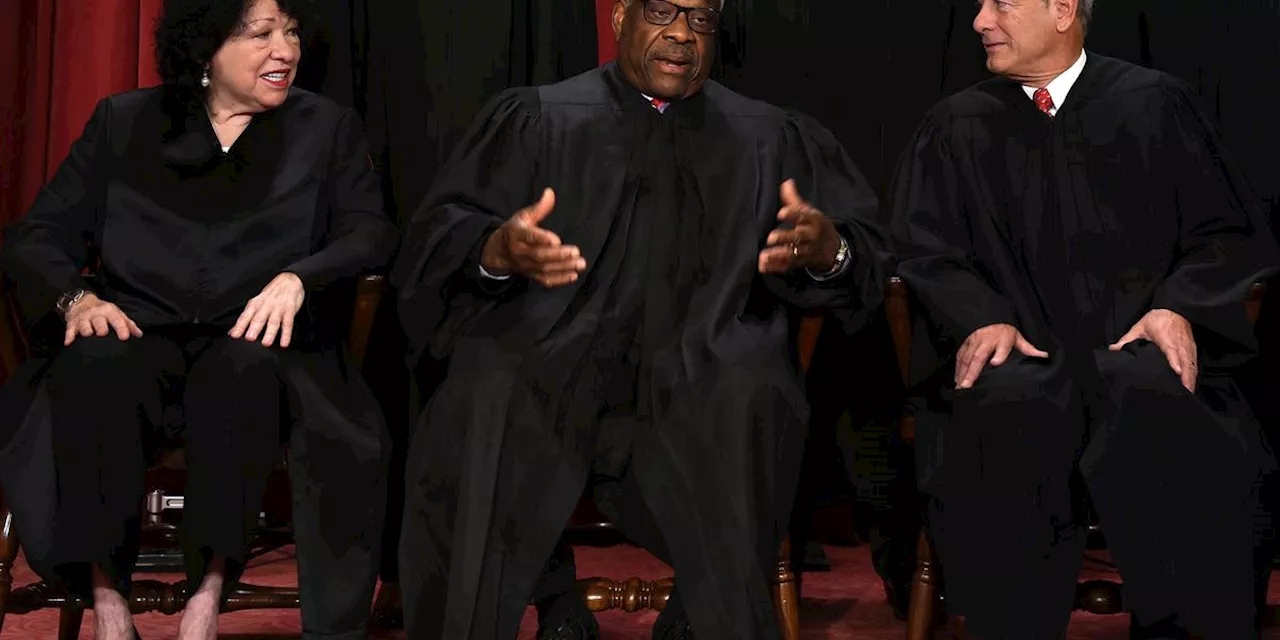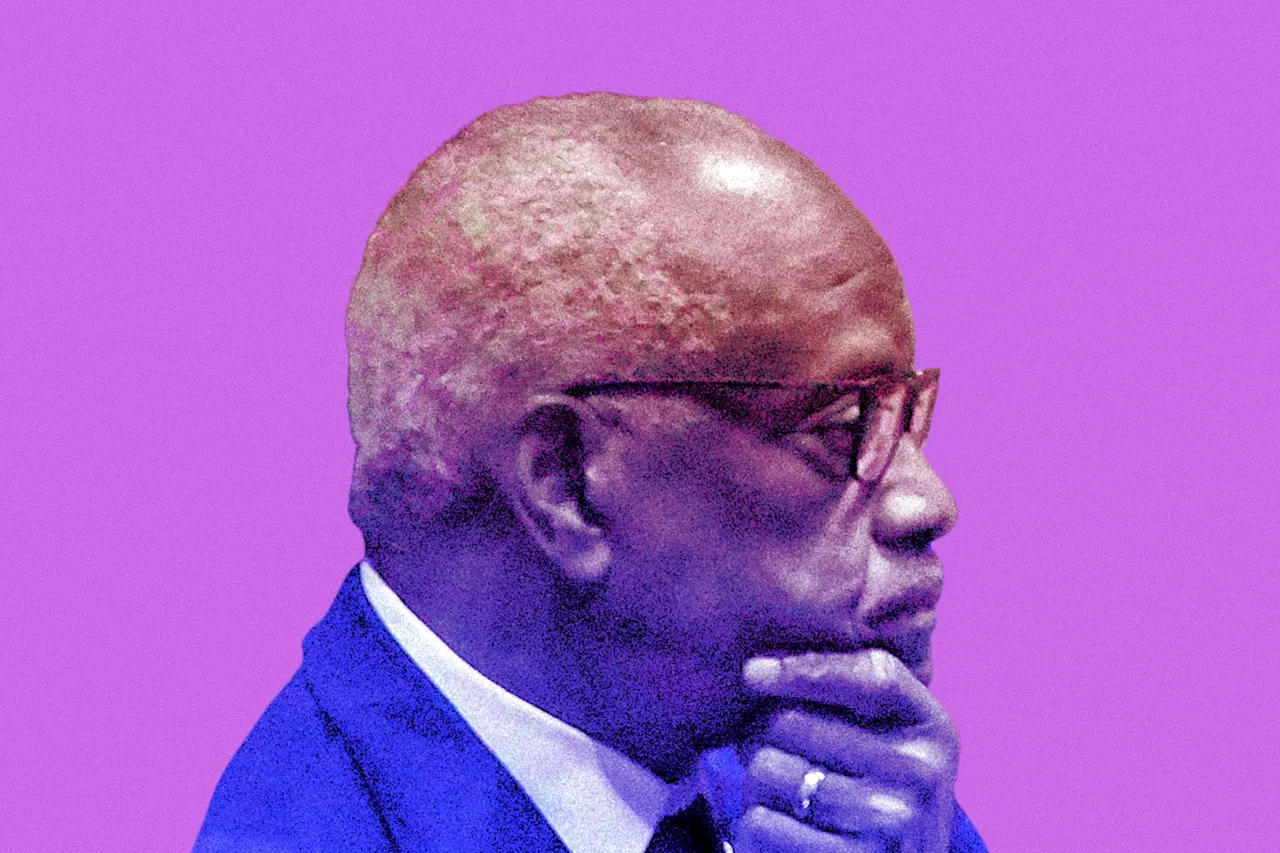The Judicial Conference declined to investigate Supreme Court Justice Clarence Thomas for allegedly unreported gifts and travel, effectively shielding him from any legal or institutional consequences.
Despite multiple congressional probes into his misconduct, Supreme Court Justice Clarence Thomas still faces no legal or institutional repercussions from any branch of government. This week, the Judicial Conference , the federal judiciary’s top policymaking body, declined to refer Thomas to the Department of Justice for investigation over massive amounts of free travel and gifts from his wealthy friends and benefactors. Judicial Conference Secretary Robert J. Conrad Jr. sent a letter to Sen.
Sheldon Whitehouse and Rep. Hank Johnson refusing the referral they requested, saying that Thomas’ amended disclosure forms “address several issues identified in your letter.” They also claimed they don’t have the authority to do anything. This decision effectively ends any hope that Thomas will be held accountable for decades of unreported travel, loot, luxury accommodations, and other perks he has received and never disclosed as required by the Ethics in Government Act of 1978. The Judicial Conference is essentially gutting the Ethics in Government Act, a federal statute that was previously legitimate and enforceable. This statute expressly gives the Judicial Conference the power to make these referrals over alleged law-breaking among federal judges to the Justice Department for investigation and potential penalties
Clarence Thomas Judicial Conference Ethics Gifts Travel Justice Department
United States Latest News, United States Headlines
Similar News:You can also read news stories similar to this one that we have collected from other news sources.
 Judicial Conference Rejects Calls to Investigate Supreme Court JusticesThe Judicial Conference, which sets national policy for federal courts, has declined to investigate Supreme Court Justice Clarence Thomas and Justice Ketanji Brown Jackson, despite requests from lawmakers and advocacy groups.
Judicial Conference Rejects Calls to Investigate Supreme Court JusticesThe Judicial Conference, which sets national policy for federal courts, has declined to investigate Supreme Court Justice Clarence Thomas and Justice Ketanji Brown Jackson, despite requests from lawmakers and advocacy groups.
Read more »
 Whitehouse Slams Judiciary for Refusing to Refer Thomas to DOJ Over Disclosure ViolationsSenator Whitehouse criticized the Judicial Conference for declining to refer Justice Thomas to the Department of Justice over unreported gifts and travel.
Whitehouse Slams Judiciary for Refusing to Refer Thomas to DOJ Over Disclosure ViolationsSenator Whitehouse criticized the Judicial Conference for declining to refer Justice Thomas to the Department of Justice over unreported gifts and travel.
Read more »
 Federal Courts Won't Refer Ethics Allegations Against Justice Thomas to DOJThe U.S. Judicial Conference has decided not to refer allegations of ethics violations against Supreme Court Justice Clarence Thomas to the Department of Justice. Thomas has agreed to follow updated guidelines on reporting trips and gifts, but the court maintains that the financial disclosure law doesn't necessarily apply to justices. The decision comes after Democratic senators called for an investigation into undisclosed luxury trips Thomas accepted.
Federal Courts Won't Refer Ethics Allegations Against Justice Thomas to DOJThe U.S. Judicial Conference has decided not to refer allegations of ethics violations against Supreme Court Justice Clarence Thomas to the Department of Justice. Thomas has agreed to follow updated guidelines on reporting trips and gifts, but the court maintains that the financial disclosure law doesn't necessarily apply to justices. The decision comes after Democratic senators called for an investigation into undisclosed luxury trips Thomas accepted.
Read more »
 Chief Justice John Roberts defends judicial independence, says it is under threat in several waysChief Justice John Roberts issued a defense Tuesday of judicial independence, which he said is under threat from intimidation, disinformation and the prospect of public officials defying court orders.
Chief Justice John Roberts defends judicial independence, says it is under threat in several waysChief Justice John Roberts issued a defense Tuesday of judicial independence, which he said is under threat from intimidation, disinformation and the prospect of public officials defying court orders.
Read more »
 Chief Justice John Roberts defends judicial independence, says it is under threat in several waysChief Justice John Roberts issued a defense Tuesday of judicial independence, which he said is under threat from intimidation, disinformation and the prospect of public officials defying court orders.
Chief Justice John Roberts defends judicial independence, says it is under threat in several waysChief Justice John Roberts issued a defense Tuesday of judicial independence, which he said is under threat from intimidation, disinformation and the prospect of public officials defying court orders.
Read more »
 Threats to Judicial Independence: Supreme Court Chief Justice Raises AlarmSupreme Court Chief Justice John Roberts highlighted four main threats to the independence of judges: violence, intimidation, disinformation, and defiance of court rulings. Roberts expressed his concerns in the Supreme Court's annual report, which comes after a year of heightened scrutiny and controversy surrounding the court's decisions, particularly the overturning of Roe v. Wade.
Threats to Judicial Independence: Supreme Court Chief Justice Raises AlarmSupreme Court Chief Justice John Roberts highlighted four main threats to the independence of judges: violence, intimidation, disinformation, and defiance of court rulings. Roberts expressed his concerns in the Supreme Court's annual report, which comes after a year of heightened scrutiny and controversy surrounding the court's decisions, particularly the overturning of Roe v. Wade.
Read more »
